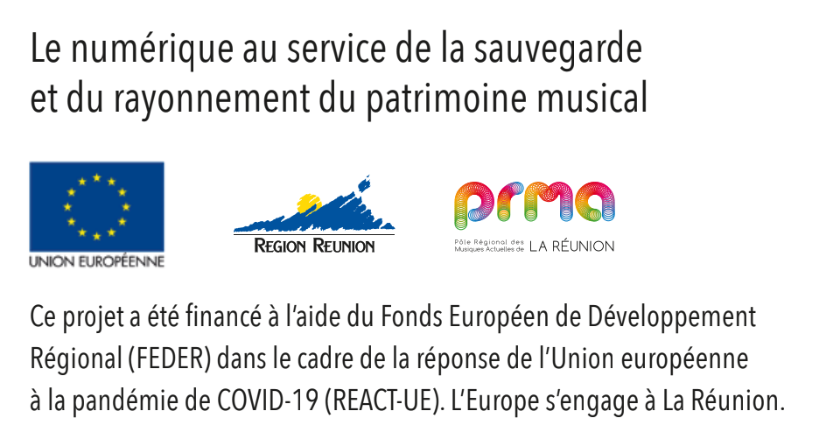Just like its population, Comorian music draws its origins from various sources: Africa, Arabia, and India as well as from nearby Swahiliphone countries. The tari, the wantruwashe, is a dance performed by women that is no exception to this blend of African and Eastern rhythms. In Anjouan, the celebratory tari dance is a way of passing on cultural heritage and promoting harmonious cohabitation between families and communities. The tari is performed for key life events such as births, initiations, weddings, commemorations, official inaugurations, and major sporting events.Tari is a term with several meanings that refers to a single-skin tambourine as well as to a dance, singing, and a musical genre.
Comoros music
The Anjouan tari or how to celebrate life every day
published by
Yakina Djelane
20 septembre 2023
The way in which the tari dance is performed can vary from place to place. The songs and choreographies evolve and are updated, but some things remain unchanged, particularly when it comes to producing songs that affect all aspects of collective and individual life.
The tari takes place in very specific social contexts, often enabling the women involved to affirm or reaffirm their status as mothers, wives, and sisters within society. Weddings, known as harusi, are one of the main occasions for tari dances. The presentation of the bride to her future in-laws and the entire community is called tari magnadza or tari la hu lawa mwendze. In a matrilocal society – i.e. where the husband goes to live with his wife's community – matrimonial alliances play a key role. The words of the songs are adapted to the circumstances and mention those who take part in the wedding. The bride and groom’s families are complimented and congratulated in the songs, and the past of both families’ ancestors is praised.
The tari is often organised after the last afternoon prayer (Ansr). There are many women's associations, with each town and village having its own traditional music association, called a shama. Some have become famous for their repertoire and their main singers, such as Mahabouba El Watoine, Huzaenya and Fouraha Ndjema. The tari is also performed to celebrate initiatory rites marking various milestones: childbirth, first haircut, circumcision, or – in the case of young girls – puberty.
We had the opportunity to watch a tari that took place on Grande Comore in Moroni’s Maluzini district. The shama who was requested to take part in the event was mainly composed of women from the neighbouring island of Anjouan. In this particular case, a mother had asked the shama to celebrate her daughter’s transition from childhood to puberty. The ceremony, called pondzo, refers to the mixture expertly prepared by the group’s most experienced women. Plant leaves were carefully selected, and the resulting powder (pondzo) mixed with honey, coins, and other valuables. This mixture will bring good luck and blessings to the circumcised boy, or to the young girl who is entering womanhood with her first menstrual period.
The words of the songs enjoin and wish the child every conceivable favour and good fortune. Analysing the songs brings to light the social representations that underpin them. There is a moralistic tone about good behaviour and the qualities expected of a young girl: preserving her virginity, honouring her family’s reputation by avoiding bad company, succeeding at school and with her Islamic education, being respectful toward elders (adabu), and so forth. The introduction begins by praising the prophet of Islam. The song is led by a soloist who alternates recitations while the other women respond in chorus. The words of the tari celebrate joyous events in the existence of a family, village, or even nation, and mark various stages in the life of men and women. Participants are dressed in identical salouva and kishali. The soloist stands in the middle of the circle, or in front when it is a line. The dance is slow-paced, accompanied by slight swaying of the pelvis and hand clapping.
The genre borrows from religion while keeping African rhythms, particularly through use of ngoma, a double-sided drum that uses goat skin stretched using plaited cord. The dafu, a single-skin frame drum, is equipped with jingles that play a secondary role. It accompanies the tari, an instrument of Arab-Persian origin made from a round piece of wood and goat skin.
In the Comoros, women guarantee the stability of the family unit and the founding values of the local community. Women's associations play an important role in passing on popular songs and dances. There are no music schools or official organisations for learning music-related professions. The young generations learn the songs and dances simply by observing and imitating their elders.The shama pass on their traditional repertoires in a lively but structured way. The songs that members learn and know by heart are written down in school notebooks, which are also used to record their financial contributions. During Comorian celebrations, money is often exchanged in the form of gifts and counter-gifts. In the past women traded valuables and practical household items, but nowadays monetary value and collecting cash take precedence. In the case of a wedding, the amount collected will increase the newlyweds’ honour (shewo) and prestige.
Traditional women's associations devote a large portion of the funds collected from the services offered during the ceremonies in order to equip the communities with basic facilities that are not provided by the public authorities, such as building schools and dispensaries, improving streets, etc. These well-targeted initiatives meet communities’ urgent needs, and inspire a desire to maintain and preserve the investments carried out.
The tari is a celebratory and congratulatory dance that accompanies festive, ritual, and political events. The initiation and passing down of songs and dances through women's associations make tari an expression of participatory community life.
Yakina Djelane
Traduction réalisée par Catharine Cellier-Smart (Smart Translate).
Photos : May 2023, Y. Djelane.

